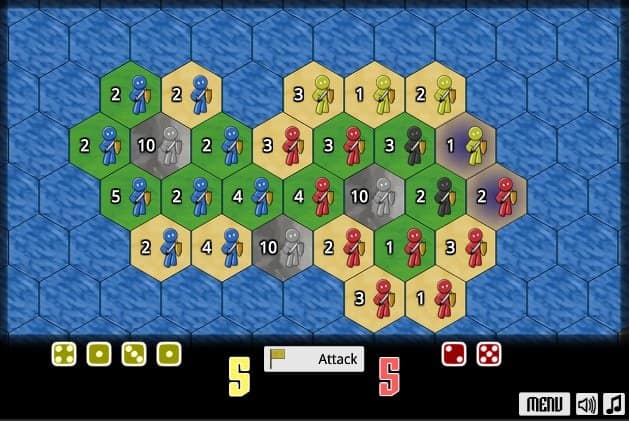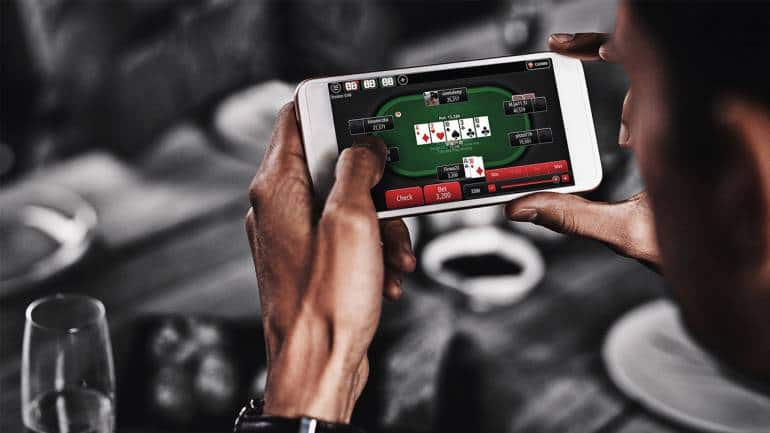Poker Patience Strategy
The Best Poker Strategy Tips Are: #1 Adopt an Aggressive Posture at the Poker Table #2 Practice the Art of Patience #3 Eyes of the Hawk #4 In It for the Long Haul #5 Fine-Tune Your Skills #1 Adopt an Aggressive Posture at the Poker Table. Here’s a truism: The only way that you can win by playing poker is if you’re betting real money. The Best Poker Strategy Tips Are: #1 Adopt an Aggressive Posture at the Poker Table #2 Practice the Art of Patience #3 Eyes of the Hawk #4 In It for the Long Haul #5 Fine-Tune Your Skills #1 Adopt an Aggressive Posture at the Poker Table. Here’s a truism: The only way that you can win by playing poker is if you’re betting real money. The Best Full Ring Poker Strategy in the World is Patience The last point that I want to make about full ring poker strategy is that it requires an incredible amount of patience at times. In fact I would go so far as to say that if you aren't a patient person, then I wouldn't even bother playing this format.
What I hope to give you in this article are a few lessons I learned the hard way, in hopes of helping the novice player avoid these common traps, namely impatience, because it can really cost you on the poker felt.

Patience is one of the hardest aspects of the game to learn. I still struggle with this critical skill. All the experts will tell you how to play your premium hands and remain disciplined to fold when you haven’t got much of a hand. They offer sound advice and you should heed it, but remember that you will not be getting a premium hand all that often. This is where patience comes in.
Upgrade your poker strategy and learn to beat the pigeons, fish, donkeys, and other bad players with euphemisms of animal kingdom members. Advice like “Avoid trap hands and play conservatively from early position.” is only useful to the most inexperienced players, but a bottom-line tip like, “Pocket pairs become more valuable against early position raisers,” might actually be useful. Poker Strategy: The Virtues of Patience In Hold'em Poker, patience is a virtue. Wait for good starting hands and then play them aggressively. But avoid getting trapped because you played a troublesome hand from early position, and then are forced to call a raise with a hand you suspect might not be the best hand even if the flop hits it.
| If you are looking for the a US poker site that is safe and secure with great rewards, a solid deposit bonus and fast cashouts then you should check out Ignition Poker. Receive a $2000 first deposit bonus, earn cash back on every hand you play and receive a check in as little as 3 weeks. Read our Ignition Poker review for more reasons why we prefer Ignition Poker over any other poker room. |
The decision you make before the flop will be the decision that costs you money or makes you money in the long run. This is the most critical point in the hand. Although you are yet to see any community cards, it is the betting round where you will be making the majority of your decisions. After all, you have to decide on what action to take in this round of betting for every new hand. But more than that, the starting hands you choose to play in Texas Hold’em will have a significant influence on the chances of winning the hand if it gets to showdown.
Many beginners play far too many hands because they lose patience from being card dead for hours, which is inevitably going to happen to every poker player at some point. But this is the time you want to be practicing your poker skills by working on your patience and discipline.
Sometimes novice players will think they can play all kind of different starting holdings after watching the World Poker Tour or World Series of Poker Main Event on TV and believe they should be playing all those crazy hands that the pros play. The thing is though they forget that the pros have a method to their supposed madness and that the TV show edits out most of the folding since it is not as exciting.
When it comes to a relatively inexperienced player attempting these same “crazy” plays, and playing junk hands, it more often than not is just going to be spew, because there will be no logical thought process going into the decision. A lot of the time, it’s simply trying to run over the table, but this uncontrolled aggression will quite often be their undoing.
I like to remind new players that they can’t lose money they don’t bet. That is the power of the fold. You could be sitting at a table with Doyle Brunson, Phil Ivey, Gus Hansen, and Johnny Chan and not lose a dime to those pros (outside of the blinds) if you folded every hand. You as the player have control over whether you are putting your money at risk or not. It is when a player starts to wade into the pool with marginal hands that the sharks start to feed. Remember that there is no shame in folding when you are likely beat. The proper fold leaves money in your stack and keeps you loaded for bear when a premium hand shows.
You also don’t need to feel obligated to hold on to either your big or small blind if you’re raised. Bad cards are bad cards regardless of where you sit and you will be out of position for the rest of the hand. As you get more advanced in your play, you can attack players you believe may be blind-stealing, but as a beginner, it may be smarter for you to live to fight another day instead of letting your ego cost you money.
If you want to practice patience, I would challenge you to try sitting at a micro-limit cash game table online (.05/.10 for instance) and fold every hand that is not considered a Top 10 hand (AA, KK, QQ, JJ, AK, AQ, TT, 99, 88, 77). This may prove to be very boring at first, but it will give you a sense of the type of patience you need. Notice how often a premium hand arrives. Obviously, the successful poker player plays many hands beyond the top 10 hands, but the beginner needs to learn patience and be capable of folding hands that may look good but really aren’t good such as Ace rags. Once you begin to develop that patience, you then can practice expanding your starting hands and working on the tricky plays.
Hopefully these few suggestions will save you money and offer you better chances to win and winning is always more fun than losing.

There’s more than one community card game on the poker scene. Texas Hold’em may be a firm fixture of bricks and mortar casinos and online avenues, but other variants are quickly gaining popularity. One of the most popular of these variants is Omaha Hold’em, a streamlined version of Texas Hold’em that was introduced to North American casinos relatively recently. While Texas Hold’em puts a big focus on odds calculation, player position and psychology, the Omaha version of the game calls for more patience, restraint and ultimately, an understanding that chance plays a big part in any win or loss.

Poker Patience Strategy
Looking to embark on a new poker career and tackle Omaha rules for yourself? Take a peek through our Hold’em poker guide to get clued up on the basics and see if you’ve got what it takes to win big.
Poker Patience Strategy Definition
Texas Hold’em – A Classic Table Game Explained
Texas Hold’Em is one of the most popular forms of poker around, and for good reason. Although it’s a game of strategy, theory and probability, not to mention a well-trained bluffer’s psychology, it’s a relatively accessible version of poker that few half-decent players have trouble with.
In the case of Texas Hold’em Poker, each player is dealt a pair of hole cards. Unlike Omaha rules and other types of poker, it’s pretty easy to discern the value of this hand from the off. In short, players can usually deduce how a game will progress for them based on this first hand. For players dealt a particularly impressive initial hand, say two Aces or another pair of high-ranking cards, there’s few rival hands that can quash them. A keen poker face, confidence in your convictions and a little bit of risk is usually all you need to get your hands on the winnings.
Texas Hold’em Strategy – Play to Win

Any Texas Hold’em player with a track record of success will tell you that observing your fellow players, understanding the odds and being fully aware of the importance of position at the table are all pivotal in ensuring ultimate success. All these points have merit, but at the core, a strategy to win only requires you to understand the overall odds of the game and what good and bad hands look like.
For newcomers to the world of Texas Hold’em, player position at the table might seem like a secondary concern, but it’s pivotal in this daring game of psychology. Ultimately, the dealer is in the best position amongst players, with the ability to best last of all proving a big advantage. The player sat immediately before the dealer is also in a very strong position and has the opportunity to render the dealer out of the game by raising a bet to sky-high levels. In these instances, this position, otherwise known as the “cutoff” can in fact prove to be the most advantageous of them all. Those sat at early positions are almost always seen as the weakest of the assembled group, having less information to hedge their bets on, meaning they’re often playing blind.
A little patience and restraint is also worth considering when establishing your Texas Hold’em strategy. Keep your bets conservative to begin with, building to higher amounts once the herd is thinned a little and you’re more confident in your hands. Once you’ve got the confidence to really push ahead, start increasing the scope of your bets and opting for more aggressive play.
A Guide to Omaha Hold’em Poker
Many poker players love Texas Hold’em so much they very rarely jump ship and try their hand at Omaha Hold’em. Even those that brave to make the change can quickly regret their decision, with Omaha Hold’em rules proving to be considerably different than with Texas Hold’em strategy. Both poker variations look similar on the surface, but a quick peer beneath the surface reveals the two to be distinctly different animals entirely.
However, this shouldn’t put you off from enjoying the thrills of Omaha Hold’em. What’s more, with the right Omaha hold’em strategy, you could find yourself walking away with some seriously meaty winnings.

One of the most obvious differences with Omaha Poker is that players are dealt a total of four hole cards. It mightn’t seem like a big deal, but it’s a subtle difference with significant knock-on effects. A broader selection of cards means that higher winning hands are inevitable, and more common, than other types of poker. The usual sure-fire winning hands of Texas Hold’em and other poker variants aren’t a confirmation of winning here.
Poker Patience Game
Omaha Hold’em Strategy for Success
One of the biggest differences in Texas vs Omaha poker strategy is patience and understanding the value that cards can have later in a game. For players more accustomed with Texas Hold’em, the prospect of a flop can seem exciting. However, it’s worth remembering that in Omaha Hold’em poker, community cards are a more regular occurrence and their overall value is lower.
It might seem thrilling to see a traditionally high value card in a starting hand, say a Jack for example, but there’s little point in waiting it out to nab a pair as the overall value of a hand like this simply won’t be enough to secure you a winning hand in most instances. With a wider pick of cards in the mix and generally lower odds, it’s nigh on impossible to pull a winning hand out of the bag, straight off the bat. Don’t expect many miracles like this occurring with Omaha Hold’em rules.
Nowadays, there’s multiple online venues for playing poker with Omaha Hold’em rules, but the general principle remains the same if you’re in it to win it. Patience is key and most certainly pays out. It can be difficult to reign it all in if you’ve been playing Texas Hold’em for a few years, but training yourself to this new strategy is well worth it.
Pick Your Battle, Bet to Win
Now you’re a little more acquainted with the differences between playing Omaha and Texas Hold’em, it’s time to decide for yourself which is the game for you. Whether you stick it out with tried and tested Texas, or embark on a new venture with Omaha rules, make sure you’ve cemented your own strategy to ensure you stand the best possible chance of winning big the next time you pull up a seat at the table.